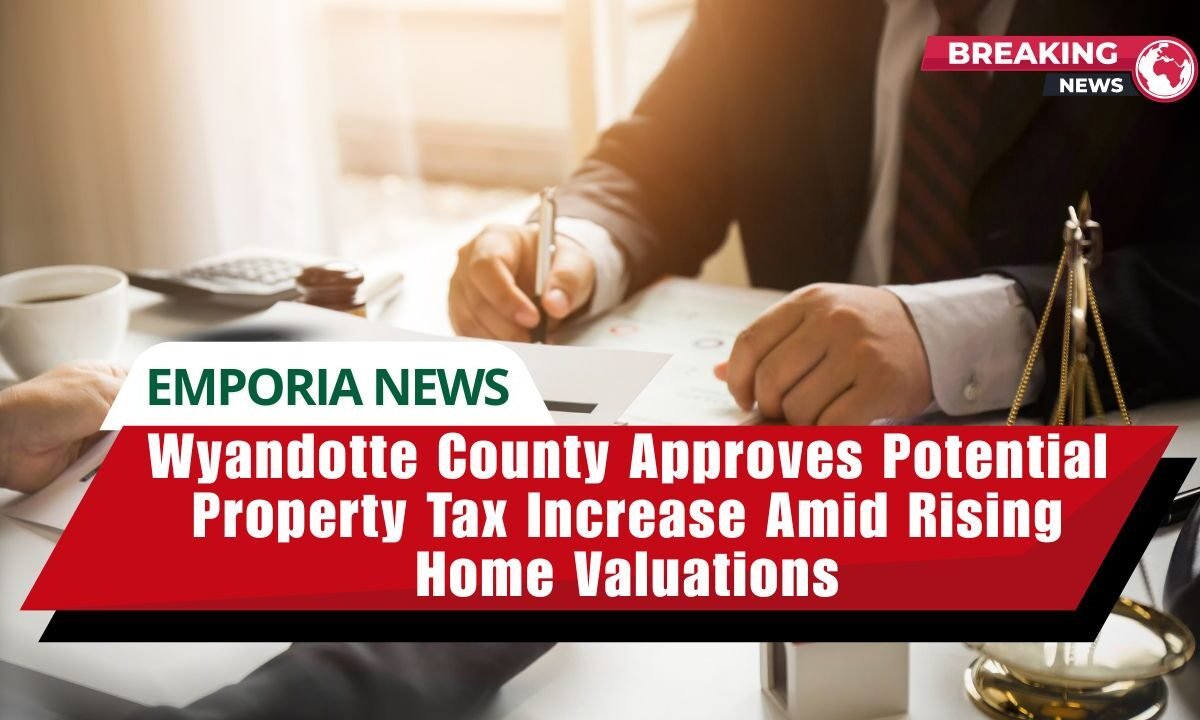In a significant fiscal move, the Unified Government of Wyandotte County and Kansas City, Kansas voted Wednesday night to approve a potential increase in the millage rate, which may result in higher property taxes for residents starting next month.
The vote came during a special commission meeting, where officials debated whether to maintain a “revenue-neutral” stance—keeping tax revenues flat despite rising property values—or to allow additional revenue collection. The commission ultimately voted 7-3 in favor of permitting a millage rate increase, capped at three mills.
Property Values Up, Pressure Mounts
According to Wyandotte County’s tax assessors, property values have risen between 5% and 7% this year. Budget officials noted that not remaining revenue-neutral could bring in over $10 million in additional funding for the county, and $8 million for the city.
A preliminary budget forecast shows a projected $16 million shortfall if the millage rate remains unchanged—prompting tough questions about whether to raise taxes or reduce spending.
Divergent Views Among Commissioners and Residents
Commissioner Tom Burroughs, who opposed the increase, emphasized the community’s desire for property tax relief.
“I’ve been to every corner of this community, and the number one issue is property tax relief,” said Burroughs.
He argued that Wyandotte County has a “systemic fiscal problem” and needs structural reform.
In contrast, Commissioner Christian Ramirez argued the county doesn’t face a spending issue, but rather a revenue shortfall.
Resident Cheryl Yates voiced strong criticism of local government spending, calling for greater transparency.
“They spend, spend, spend. We don’t get the audits, the budget isn’t available during these decisions, and we can’t trust them,” she said.
Calls for Budget Responsibility and Transparency
Mayor Tyrone Garner offered a more neutral stance, highlighting the importance of examining both revenue and expenses.
“Every year, we ask more from our residents. I don’t know if revenue is the problem or if spending is the problem, but we need to review our spending closely,” Garner said.
Commissioner Melissa Bynum supported the potential tax increase, stating the importance of taking ownership over funding decisions.
“It wouldn’t be fair to adopt a budget requiring massive cuts to city and county services without accepting responsibility for those decisions,” she said.
Next Steps in the Budget Process
County Administrator David Johnston is scheduled to present the finalized budget on August 7, which will reflect the proposed millage rate increase.
A formal vote on the budget and property tax rate is set for August 26. If approved, residents could see a total increase of up to 5.3 mills, accounting for both the rate hike and rising home assessments.
The Unified Government’s decision to consider a millage rate increase reflects growing financial pressure amid rising property values and budget shortfalls.
While officials are divided over whether the root issue lies in spending or revenue, the debate highlights the challenge of maintaining essential services without placing an undue burden on taxpayers.
As the August budget vote nears, transparency and public engagement will be crucial in shaping the county’s fiscal path forward.




